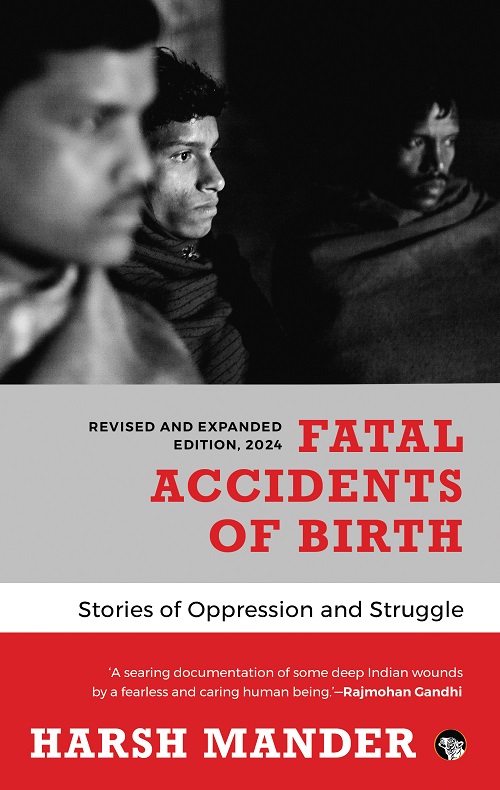FATAL ACCIDENTS OF BIRTH STORIES OF OPPRESSION AND STRUGGLE
Harsh Mander is one of India’s most trusted and courageous social justice and human rights activists. He works with survivors of mass violence and hunger, as well as homeless persons and street children. He is the author of several acclaimed books on contemporary India, among them, Looking Away: Inequality, Prejudice and Indifference in New India; Partitions of the Heart: Unmaking the Idea of India; Ash in the Belly: India’s Unfinished Battle Against Hunger; and Burning Pyres, Mass Graves and a State that Failed Its People: India’s Covid Tragedy. He regularly writes columns for Scroll.in, TheWire and Article 14, and contributes frequently to scholarly journals. ... Read more Read less
This volume collects twenty-one stories of women and men who, simply because they were born poor, or a particular gender, or into a certain caste or religion, fell prey to the many atrocities and indignities endemic to contemporary India. Some resisted, survived, and soldier on. Some did not.
Lachmi Kaur, who lost nearly all male members of her family in the anti-Sikh riots of 1984, overcame despair to singlehandedly bring up her children and grandchildren with fierce love and pride. With great courage of conviction, Krishan Gopal, a Dalit man from Nimoda in Rajasthan, built his own shrine to Hanuman when forbidden from the village temple by his upper-caste neighbours. The persecution, violence and exile that followed lasted all his life. At 28, Dandapani defied his family—which could not accept him for what he was—left home, and underwent a sex-change operation. Now known as Dhanam, she lives with her extended family of eunuchs in a Chennai shanty. The family of Pehlu Khan, lynched for ‘cattle smuggling’ in Alwar, tells its harrowing tale of battling a hostile state, bent on shielding the killers and punishing the victims for a crime they did not even commit. Thangboi Singset of Imphal, when he was similarly reminded of being born to the ‘wrong’ group, found an unusual way of resisting the hate.
Fatal Accidents of Birth is a powerful, challenging book. It tells us of the many ways in which we inflict violence upon each other—most of all by simply choosing to not see. And as it does so, this necessary book ensures that these stories will find their rightful place in our consciousness.
... Read more Read less










